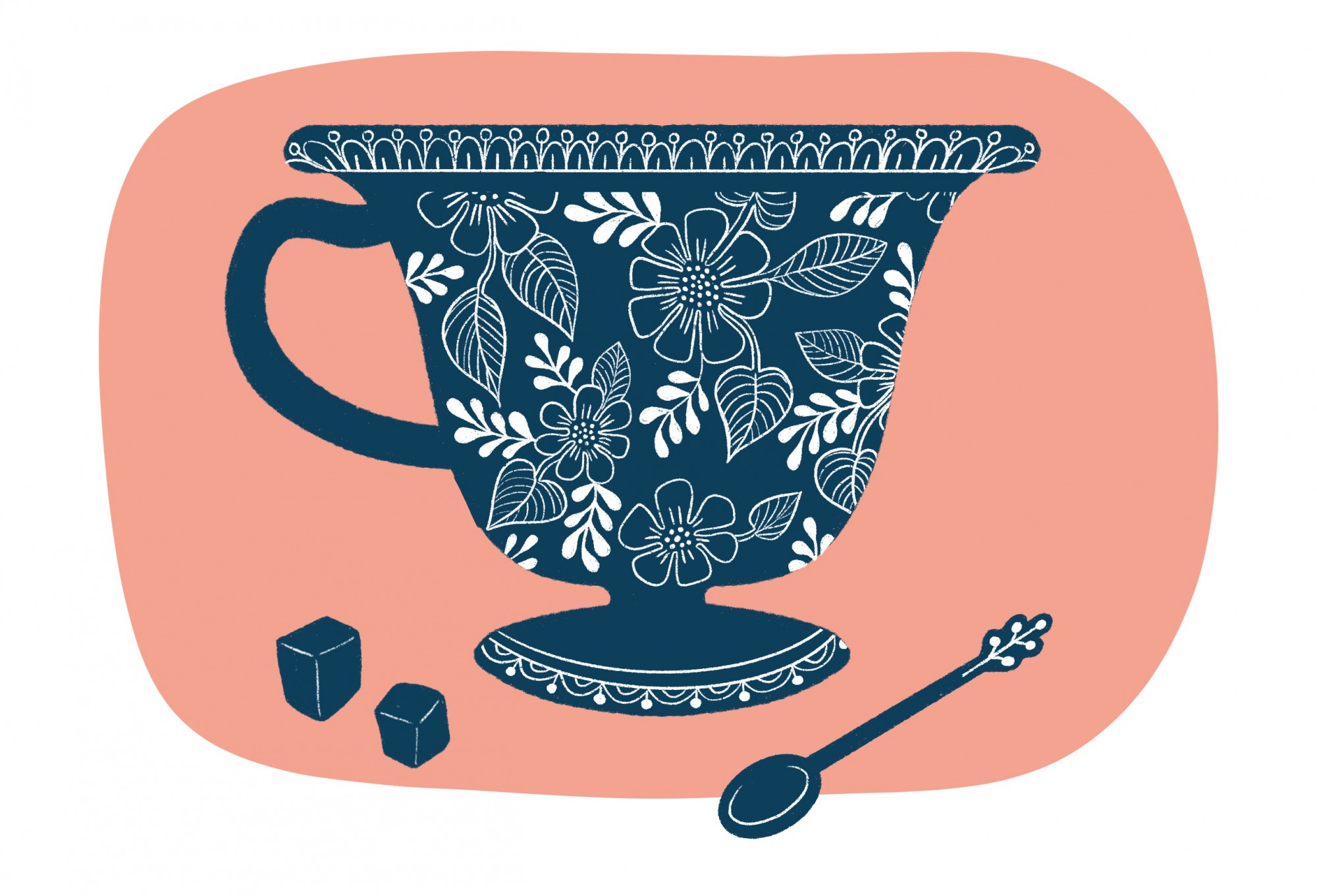Among the many different experts who call Minneapolis home, a World Tea Expo “best tea educator” may not be a name that comes to mind.
Bill Waddington, a resident of Northeast Minneapolis, has been in the tea business for decades. He’s tasted tea that sells for $300 a pound and tea that is 150 years old — and he’s seen the certificate to prove it. Now the owner of TeaSource, which has three locations around the Twin Cities, Waddington and his team create new blends together and are always happy to have a cup of tea with customers.
A&E caught up with Waddington via phone call (let’s keep up with the social distancing, friends) to chat about the beginning of his love affair with tea, his best steeping advice and the benefits of just making a cup.
So, where did your interest in tea stem from?
I’ve never been a coffee drinker. I think coffee tastes disgusting, which is like sacrilege to say to a college student, but I think it’s just a terrible taste and aroma. When I was in college, I needed to stay awake late at night, so I found caffeine alternatives. I started drinking the cheapest tea in the world because I was a college student. Around the time I was 22, I was like ‘You know, there’s gotta be great tea in the world somewhere.’ I started researching it a long, long time ago, like before Al Gore invented the internet. I started tracking down the names of key growers in Bombay, the key brokers in Shanghai, tea blenders in Hamburg, Germany, and I sent out probably a couple hundred letters with stamps and envelopes saying, ‘I read about you, and it sounds like you’re really proud of your tea. Could I buy a pound?’ And one of the things that attracted me to the tea industry right away was it’s an old-fashioned industry in the sense of being civil, kind, considerate, courteous to people. Almost everyone I wrote a letter to actually responded with a letter.
What kept sustaining your interest?
Once I got into it, I realized it’s a bigger world than the world of wine and it’s even geekier. I got fascinated by the knowledge, the history, the romance, the flavor range. The flavor range is bigger than the lightest riesling or chardonnay and the strongest port. I got sucked in because it’s an inexhaustible world of sensory experience and human experience. And I’ll throw this out real quick because if you don’t know this you should — all tea comes from the same plant. The botanical name for that is Camellia sinensis and there are only two species of that plant. If I had a tea bush right in front of me right now, I could pluck the top leaf and make a wonderful green tea, but I could pluck the leaf next to it and make a wonderful black tea out of it. I could make a wonderful white tea out of it. I could also grind it up into powder and sell it to Lipton for cheap, black tea, but they all come from one plant. And my job entails tasting around 2,000 teas every year.
I would think that most college students buy the cheapest stuff they can, so what advice do you have for steeping cheap, low-quality tea?
Great question. Don’t follow the directions on the box. They just put the same directions for every kind of tea. So, general steeping advice is experiment a little bit. Start with black tea. A standard measurement is one teaspoon measured, like your mom used to do baking cakes, for an 8-ounce cup. Most people make tea with way too much tea and they waste money as a result. It comes out so strong and bitter since they’re using too much leaf or too many teabags. The second thing is water temp. For black tea, get it boiling if you can. Even if it’s a pot on the stove, it’s better than putting it in the microwave for three minutes. Microwaves never quite get to boiling. Green tea you should do with steaming water. When you see steam coming off the water, whether it’s in a kettle, or in a pot on the stove, but it’s not bubbling, that’s going to be right for green tea. The lower the temperature, the less bitter it’ll be.
If someone is starting to feel a little sick, what kind of tea should they drink?
On our website, we don’t market tea on the benefits of the tea because I’m not a doctor. Having said all that, I encourage people to do their own research. Tea is one of the healthiest things you can consume — it’s like eating dark leafy vegetables. The healthiest tea to drink is the one you like because you’ll drink lots of it. You won’t treat it like medicine. You’ll take more of it into your body which will give you more benefits. The only kind of qualifier I put on tea is that it does have caffeine in it so if you’ve got a sore throat or it’s dry, drink something herbal instead. Caffeine dehydrates you, so find an herbal tea that you like and drink lots of that.
Is there anything else you want to add?
Two things — first, tea is the healthiest thing you will take into your body. Second, making a cup of tea will also cause you to calm down a little bit, just take a breath, get through life. You didn’t ask for this, but the first book on tea was printed in China 2,000 years ago and here’s a quote [by T’ien Yiheng]: “Tea is drunk to forget the din of the world.” It makes you catch your breath, it makes you settle down. It gives you a break from the craziness of the life around us.








